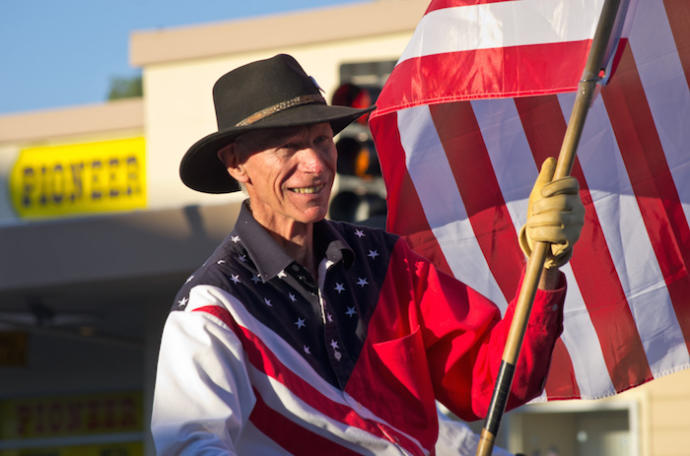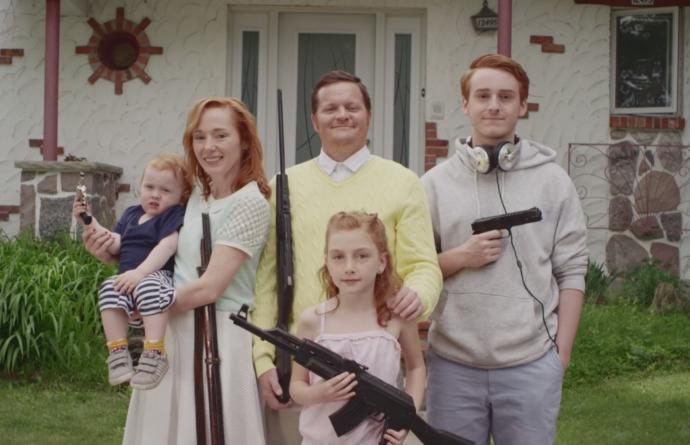
Here's the thing about stereotypes. The people at the other end of them generally hate them because they tend to make an assumption that everyone is like this or they really aren't true altogether, or perhaps they used to largely be true, but times have changed but the stereotypes have not. The other thing about them, is most people have them about someone else or other country as well.
Let's start with a good one shall we...
1. Americans are too friendly...
How can that be a bad thing you wonder? Since when is friendliness not something someone should outwardly posses? When American's are young, most are taught that you "do not talk to strangers." It's a safety issue, because you don't know who the strangers are, or their intentions, so it's best to keep moving or seek the help of an adult if you are unknowingly approached by one.
Except, cut to 10, 15 years later, and strangers are talking to each other all the time. You're standing in a grocery store line, when say an elderly woman you don't even know will talk about how cute your kid is and how he reminds her of her grandchild. Next thing you know, the parent is asking about said grandchild, and then the kid is made to sing his favorite song, and then the two are laughing and discussing all things kids. As a general rule, the smaller in populous a place is and/or the more Southern a place you visit in the US, the more common and accepted these interactions are.

Now to another American, for the most part, nothing is wrong with this scenario. That parent would take that as a compliment that the grandparent behind them liked their kid, and find nothing wrong with being friendly, but this may not be the case to someone from another country. Same grandmother says, your kid reminds me of their grandchild just randomly abroad, and that other parent may just look at them like who are you and why are you talking to me least about my child.
An American might view that interaction as someone being in a bad mood, or being rude not to engage, but in a lot of other countries, you keep to yourself. Strangers have no business just randomly striking up conversations with you. It's almost impolite and rude to ask about what they are doing, what they like, to point out a similarity, or sometimes even how their day is without first being formally introduced say at a party or through work or other friends. Until then it's strictly none of your business. Neither interaction is wrong, just different. On either side, it's probably best to adapt to the local culture and not try and change it because this is how on either side, people grew up and what they know.
2. Americans are too patriotic...
In America just about every car dealership, library, bank, public office, mall, and school has an American flag pole right out front flying high both the American flag as well as whatever state flag the buildings are located in. There are also several holidays like the 4th of July (Independence Day) or Memorial Day, in which even higher numbers of the flag can be seen.
However, unless it's a specific American holiday like the 4th of July or like a fun run, most do not consider it cool to just walk down the street in say head to toe American flag clothing. It's actually kind of on the cheesy/corny side. You'd probably get a few strange looks on a Tuesday in the middle of the week. All in all though, in America, most people do not generally equate someone flying or wearing American gear with anything else but American pride (which is a good thing in the US) but to others, this can be seen as a detriment.

In other countries, sometimes those that are seen as this patriotic tend to be more on the much more radical side. Think more along the lines of say a KKK group where they want to violently kick people out who don't look like them or whom they don't feel support the ideals and values of the country. In short, it's not a good thing. These people can be dangerous in their fanaticism over their love of country. So to see a bunch of American's chanting "USA" or wearing or hosting flags, may be a thing that puts some on edge because in their own country this level of "pride" in country, is not a good thing. In the US, however, most think nothing of it.
Anyone from those in Washington, to your local business woman, to your local boy scout troop, to your neighbor, can wear or fly an American flag, and it's seen as a patriotic thing--someone that genuinely loves their country, and not someone who has intentions of destroying it or other Americans or other people. A distinction can usually be made with radical groups here because they tend to fly an American flag in conjunction to a flag specific to their hate group or other radical group.
3. American's are war loving gun toting crazies...
This tends to be one of those hot button issues opposing sides hit, even on American soil, where absolute discourse erupts. You have two camps where one more or less believes at least assault weapons should be taken away, and American's shouldn't be getting involved in so many international conflicts, and another who will fight vehemently for their right to carry no matter if children are being gunned down in one's local school or the ghettos of America and that the wars America participates in are absolutely necessary for xyz reasons.
There are a lot of hands in this fire and what it ends with usually is just a lot of back and fourth. On the foreign side of things, a lot of the news being shown abroad is of mass killings, and shootings and politicians getting on air defending gun rights alongside gun interest groups. We may in fact all appear as if we love war and violence, and that every home has a gun owner or five, but that is hardly the case.

As far as war is concerned, a lot of countries currently in war have a lot of interests groups and people with financial reasons for wanting to go to war, that help push countries into war for personal gain. I personally have always maintained that no country truly goes to war for altruistic reasons alone, but rather, they want something on the back end because you are risking your people to help a whole other country. Oil, resources, labor, land, condo building, production, political gain, you name it. There is always propaganda about how a country is going in to save or free somebody, but you don't see backdoor dealings and handshakes as to the underlying meaning of why a country will continue to fight some place.
It can be frustrating when people make that assumption that all Americans just want to shoot people and go to war, but there are certainly individuals that don't discourage this behavior or play to the stereotype and continue to create this picture that American's are all only a blood thirty group of people.
 Holidays
Holidays  Girl's Behavior
Girl's Behavior  Guy's Behavior
Guy's Behavior  Flirting
Flirting  Dating
Dating  Relationships
Relationships  Fashion & Beauty
Fashion & Beauty  Health & Fitness
Health & Fitness  Marriage & Weddings
Marriage & Weddings  Shopping & Gifts
Shopping & Gifts  Technology & Internet
Technology & Internet  Break Up & Divorce
Break Up & Divorce  Education & Career
Education & Career  Entertainment & Arts
Entertainment & Arts  Family & Friends
Family & Friends  Food & Beverage
Food & Beverage  Hobbies & Leisure
Hobbies & Leisure  Other
Other  Religion & Spirituality
Religion & Spirituality  Society & Politics
Society & Politics  Sports
Sports  Travel
Travel  Trending & News
Trending & News
Most Helpful Opinions